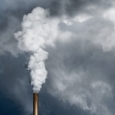Oil, Coal, and Gas Regulations
Oil, gas, and coal are three of the most widely used energy sources in America. Unfortunately, all three take a terrible toll on human populations and the environment, both during the extraction process and use. Government agencies including the Bureau of Ocean Energy Management, Regulation and Enforcement (BOEMRE) and the Environmental Protection Agency (EPA) monitor and regulate these economic sectors, and numerous laws have been passed to address the negative externalities created by these industries.
Commentary
PG&E’s success in Washington led to failure in San Bruno
Cry Wolf Quotes
These regulations, taken in combination with other pending requirements, will have serious affects on the petroleum industry, the economy, and the nation--reducing investment in capacity and new technologies, making domestic refiners less competitive in the global marketplace, increasing imports of refined products by up to 500,000 barrels per day, increasing consumer prices for products such as gasoline and heating oil, and reducing industry employment.
I am here today to address the proposition that two provisions of the Energy Policy Act of 2005--that being section 327 concerning hydraulic fracturing, and section 328 regarding stormwater--have resulted in harm to drinking water resources in the United States. The evidence would strongly suggest otherwise. These two provisions simply removed unnecessary administrative burdens on the production of oil and natural gas in the United States.
Testimony submitted to this hearing by the Natural Resources Defense Council (NRDC) proposes a series of changes to federal environmental law that taken together can only serve to cripple American oil and natural gas production without attendant environmental benefits....The Committee – and more broadly the Congress – should summarily reject NRDC’s proposals. They follow the tired path of alleging to the Congress the need to change laws and regulations that do not follow NRDC’s world view and where NRDC and its allied professional anti-development organizations have failed to change the regulatory program through the normal processes or by appealing to the court system. This collection of proposals will have one clear effect – less exploration and production of American oil and natural gas and more foreign dependency. This is hardly an energy policy that makes sense of America.
The proposed rule prescribes stricter requirements than the approach on which it is based (API Recommended Practice 75, Development of a Safety and Environmental Management Program for Offshore Operations and Facilities, or SEMP), and may generate significant difficulties for operators and contractors to abide by the rule.



